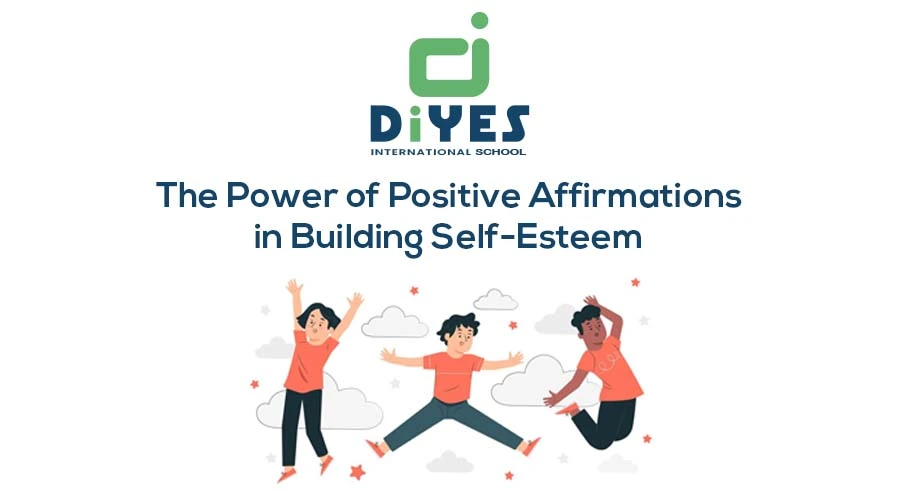Self-esteem, a fundamental aspect of mental well-being, shapes our perceptions and interactions with the world. Positive affirmations, simple statements that affirm our worth and abilities, can be a powerful tool in enhancing self-esteem. This blog explores the science behind positive affirmations, their impact on self-esteem, and practical strategies for incorporating them into daily life to nurture a positive self-image and inner confidence.

Understanding the Science of Positive Affirmations
Positive affirmations are short, affirmative statements designed to counteract negative self-talk and instill a sense of self-worth and empowerment. Grounded in cognitive-behavioral therapy (CBT) and self-affirmation theory, positive affirmations work by rewiring neural pathways, gradually replacing self-limiting beliefs with empowering narratives.
Neuroplasticity
Neuroplasticity, the brain’s ability to reorganize and form new neural connections, underpins the effectiveness of positive affirmations. By consistently repeating affirming statements, we can reshape neural pathways associated with negative self-perceptions, nurturing a more positive outlook and self-image.
Self-Affirmation Theory
Self-affirmation theory posits that affirming one’s core values and strengths can buffer against threats to self-esteem and enhance resilience in the face of adversity. By affirming our inherent worth and capabilities, we bolster our sense of self-integrity and self-compassion, reducing the impact of external stressors on our self-esteem.
The Power of Repetition
Repetition reinforces new neural pathways and strengthens the association between affirming statements and self-beliefs. Consistent practice over time is essential for ingraining positive affirmations into our subconscious mind, influencing our thoughts, emotions, and behaviors.
Understanding these scientific mechanisms highlights the potential of positive affirmations as a tool for enhancing self-esteem and psychological well-being.
Harnessing the Power of Positive Affirmations
Incorporating positive affirmations into daily life requires intentionality and commitment but can yield profound benefits for self-esteem and overall well-being. Here are practical strategies for harnessing the power of positive affirmations to build self-esteem and cultivate a more positive mindset.
Identifying Personal Affirmations
Begin by identifying areas of self-doubt or negative self-talk. Choose affirmations that directly counteract these beliefs and align with your core values and aspirations. For example, if you struggle with feelings of inadequacy, affirmations such as “I am enough” or “I deserve love and respect” can be impactful.
Crafting Affirmations with Intent
Craft affirmations that are concise, clear, and emotionally resonant. Use present tense and affirmative language to reinforce the belief that the desired outcome is already true. Visualize yourself embodying the qualities or attributes described in the affirmations, engaging your senses and emotions to amplify their impact.
Practicing Mindful Repetition
Set aside dedicated time each day to practice positive affirmations, preferably in a quiet and relaxed environment where you can focus inwardly. Repeat affirmations aloud or silently, paying attention to the words and sensations they evoke. Incorporate deep breathing or visualization techniques to enhance the sense of relaxation and receptivity.
Integrating Affirmations into Daily Rituals
Integrate affirmations into daily rituals such as morning routines, meditation practices, or bedtime reflections. Write affirmations on sticky notes and place them where you’ll see them frequently, such as on the bathroom mirror or refrigerator door. Use technology to set reminders or create affirmations playlists to infuse your day with positivity.
By incorporating positive affirmations into daily life with intention and mindfulness, individuals can reprogram their subconscious mind and cultivate a more positive self-image. Consistent practice amplifies the efficacy of affirmations, empowering individuals to overcome self-limiting beliefs and embrace their inherent worth and potential.
Overcoming Challenges and Resistance
While positive affirmations can be powerful, they may encounter resistance or skepticism, particularly if deeply ingrained negative self-beliefs are present. Understanding common challenges and strategies for overcoming resistance can enhance the effectiveness of affirmations and support long-term growth.

Cultivating Self-Compassion
Practice self-compassion and kindness towards yourself, especially when encountering setbacks or moments of doubt. Approach affirmations with an attitude of curiosity and openness, welcoming the process of self-discovery and growth. Be gentle with yourself and celebrate small victories along the way.
Seeking Support and Accountability
Reach out to trusted friends, family members, or mental health professionals for support and encouragement on your affirmation journey. Share your affirmations with others and invite them to hold you accountable, providing feedback and validation as you progress. Join online communities or support groups dedicated to positive affirmations to connect with like-minded individuals and share experiences.
Addressing Inner Resistance
Inner resistance may arise when affirmations contradict deeply held beliefs or trigger feelings of unworthiness. Acknowledge and validate these feelings without judgment, recognizing that change takes time. Reframe affirmations to focus on progress rather than perfection, emphasizing growth and self-compassion.
Adapting and Reframing Affirmations
Be flexible and adaptive in your approach to affirmations, experimenting with different statements and techniques to find what resonates best with you. If certain affirmations feel forced or ineffective, explore alternative wording or themes that align more closely with your authentic self. Trust your intuition and listen to your inner wisdom as you navigate the affirmation process.
Overcoming challenges and resistance is an integral part of the affirmation journey, reflecting the depth of personal growth and transformation. By cultivating self-compassion, seeking support, and remaining open to adaptation, individuals can navigate obstacles with resilience and determination, ultimately harnessing the full potential of positive affirmations to build self-esteem and inner confidence.
The Journey of Self-Discovery
Building self-esteem through positive affirmations is not a quick fix or one-size-fits-all solution but rather a deeply personal journey of self-discovery and growth. Embrace the process with openness and curiosity, knowing that each affirmation practice is an opportunity for self-reflection and empowerment.
Cultivating Presence and Awareness
Take moments throughout the day to check in with yourself, noticing any thoughts or emotions that arise. Use these moments of awareness to reflect on how your affirmations are influencing your mindset and behavior, adjusting them as needed to better align with your evolving self-perception.
Embracing Vulnerability and Imperfection
Accept vulnerability and imperfection as integral parts of the human experience. Recognize that self-esteem is not about achieving perfection but about accepting your authentic self, flaws and all. Allow yourself to be vulnerable in the process of affirmations, knowing that growth often occurs through moments of discomfort and uncertainty.

Cultivating Gratitude and Self-Compassion
Practice gratitude for the journey of self-discovery and the opportunity to nurture your self-esteem through positive affirmations. Treat yourself with kindness and understanding, especially during challenging moments. Acknowledge your progress and celebrate your resilience, knowing that every step forward is a testament to your strength and courage.
Embracing the Process of Unfolding
Trust that positive affirmations are planting seeds of transformation that will blossom over time. Release the need for immediate results and instead focus on the journey itself, savoring each moment of growth and self-awareness along the way. Embrace uncertainty as a catalyst for growth, knowing that each step forward brings you closer to embodying your true essence.
The journey of self-discovery through positive affirmations is a deeply personal and transformative experience. Embrace the process with openness, curiosity, and self-compassion, knowing that every affirmation is a step towards greater self-awareness, acceptance, and empowerment.
Conclusion
Positive affirmations serve as a powerful tool in the journey of self-discovery and self-improvement, offering individuals a means to reshape their self-perception and cultivate inner confidence. By understanding the science behind affirmations and harnessing their transformative potential in daily practice, individuals can gradually rewire their neural pathways, replacing self-limiting beliefs with empowering narratives.
At DiYES International School, we recognize the importance of nurturing self-esteem and empowering students to embrace their unique qualities and strengths. Through our holistic approach to education, we integrate positive affirmations and mindfulness practices into the curriculum, providing students with the tools they need to cultivate resilience, self-compassion, and inner confidence. By nurturing a supportive and nurturing environment, we empower students to realize their fullest potential and excel academically, emotionally, and socially.
To learn more about DiYES International School and our commitment to nurturing self-esteem and personal growth, visit our website at www.diyesinternational . edu.in or contact us at +918547609000.
